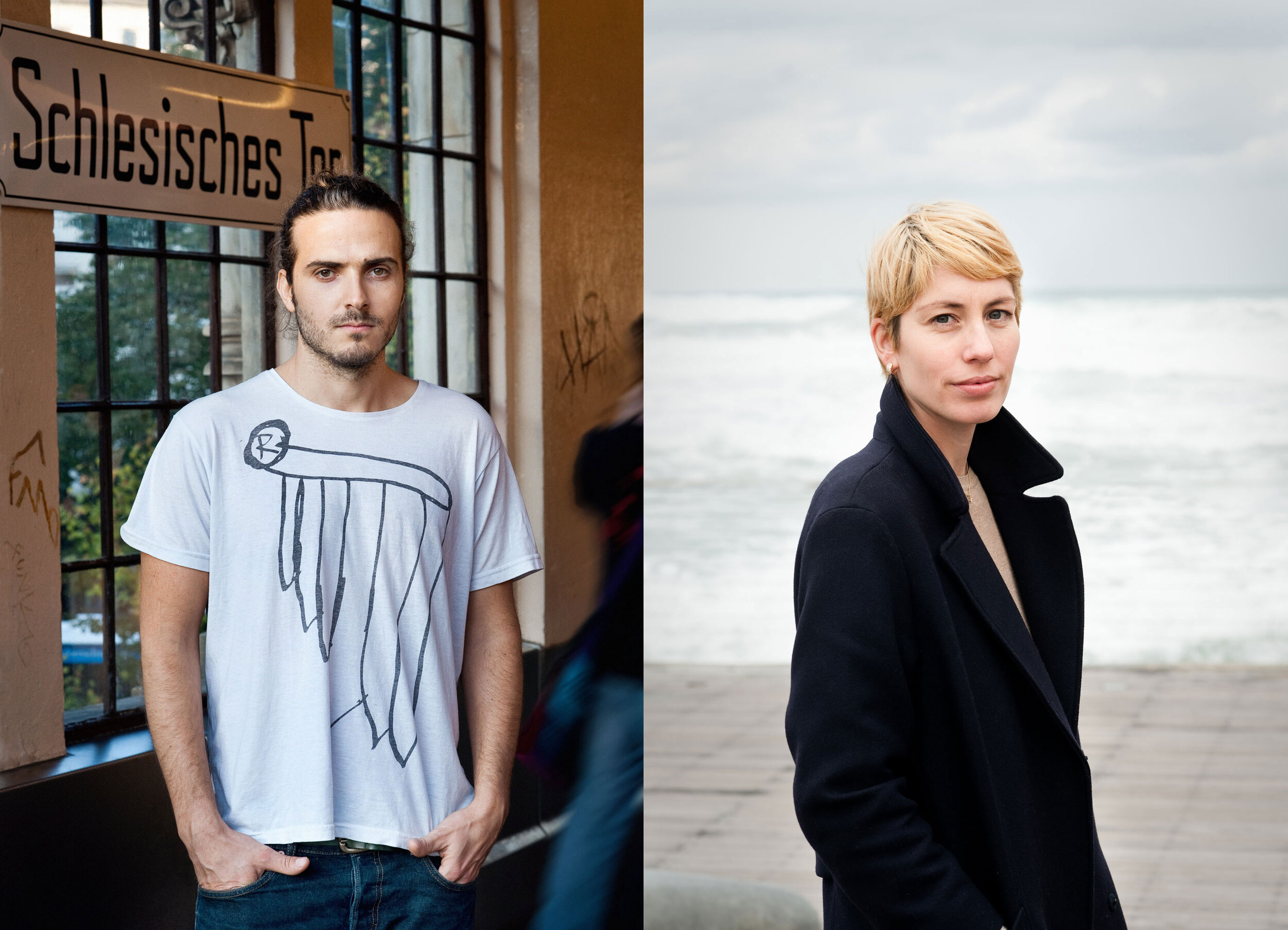
2015 in the occasion of the 50th anniversary of diplomatic relations between Israel and Germany I traced the German-Israeli relations beyond the political agenda by working with individual people About 20.000 Israelis have made Berlin their home and many Germans are living in Israel. Understanding, empathy, but also fractures and differences can only be experienced in direct contact with the respective other. The personal contact I experienced painted an increasingly differentiated picture of German-Israeli relations.
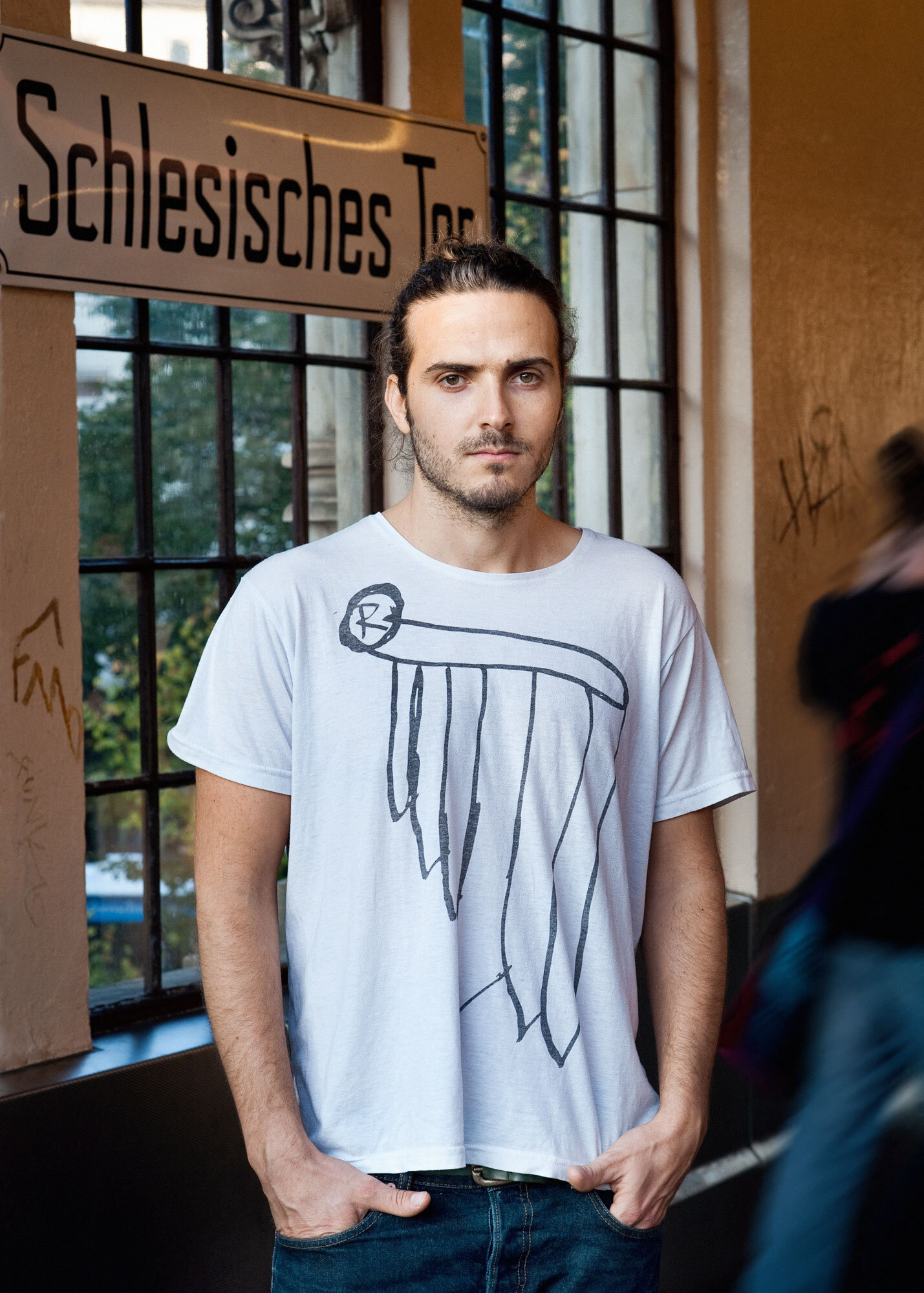
*1987 in Tel Aviv, musician, lived in Berlin for one year
Being an Israeli means: To be rude. To get what you want. To be militant. To be loud. To drive dangerously. To honk, beep beep. To always get along, no matter where you are. To get friends anywhere. To know at least one person, no matter where you are. To get things going.

Katharina Höftmann-Ciobtaru
*1984 Rostock, Autorin und Journalistin, lebt seit 2010 in Tel Aviv
Ich bin im Kern Deutsche und manchmal fehlt es mir unglaublich, einfach „zu Hause“ zu sein. Ich glaube, dass schon immer eine gesunde Portion Israeli in mir steckte - aber gerade seitdem ich einen kleinen Sohn habe, ist es mir wichtig, auch die Kultur und Werte, mit denen ich aufgewachsen bin, hochzuhalten. In Deutschland bin ich nun mal eine Gurke unter Gurken. Zum Glück ist Israel ein Gemüsesalat.
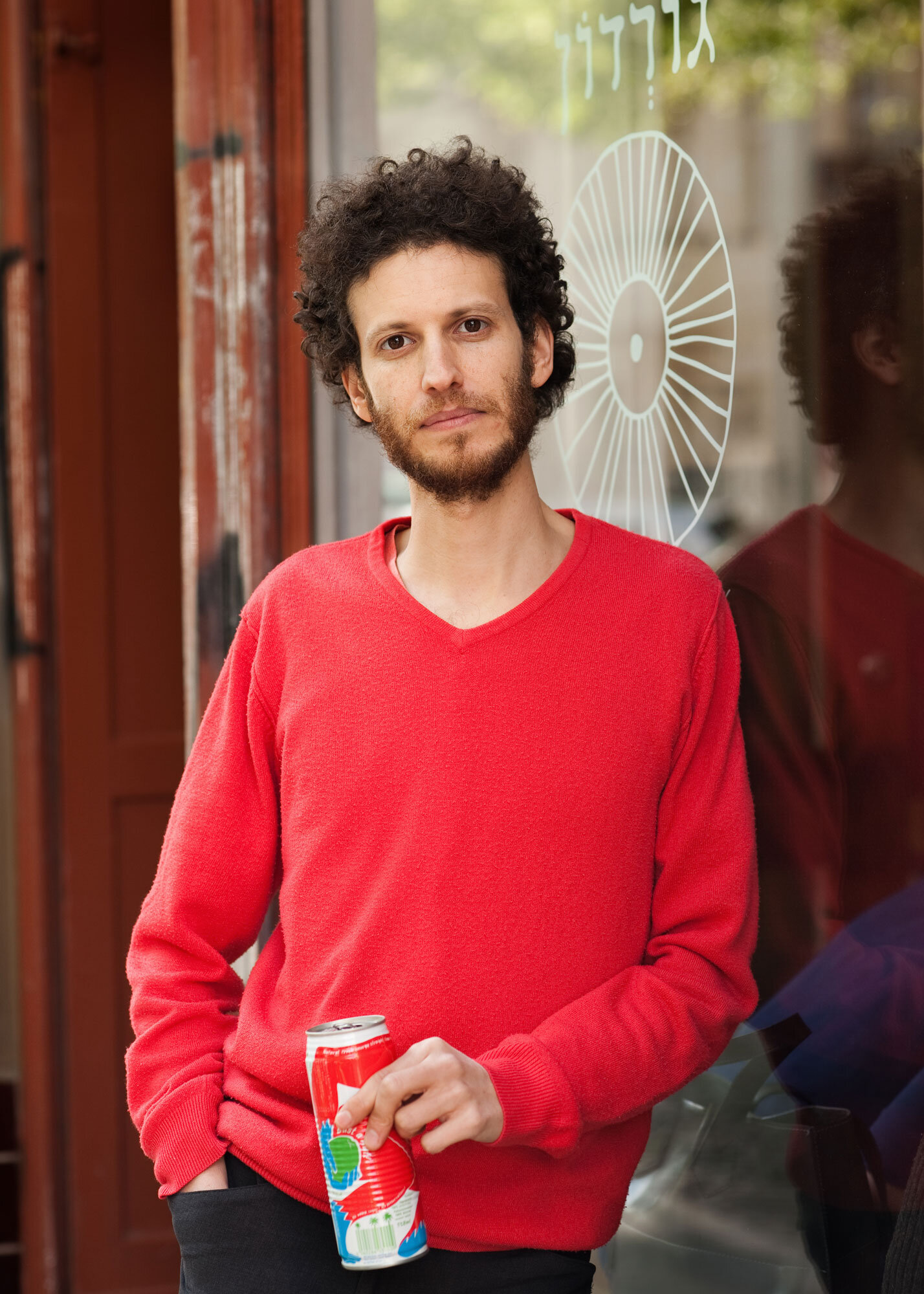
*1982 in Qiryat Gat, lives and creates in Berlin since 2014
I never define myself as an Israeli or Jew, but rather, as a Hebrew. I believe we should strive to relinquish all definitions and comprehend that all is one.
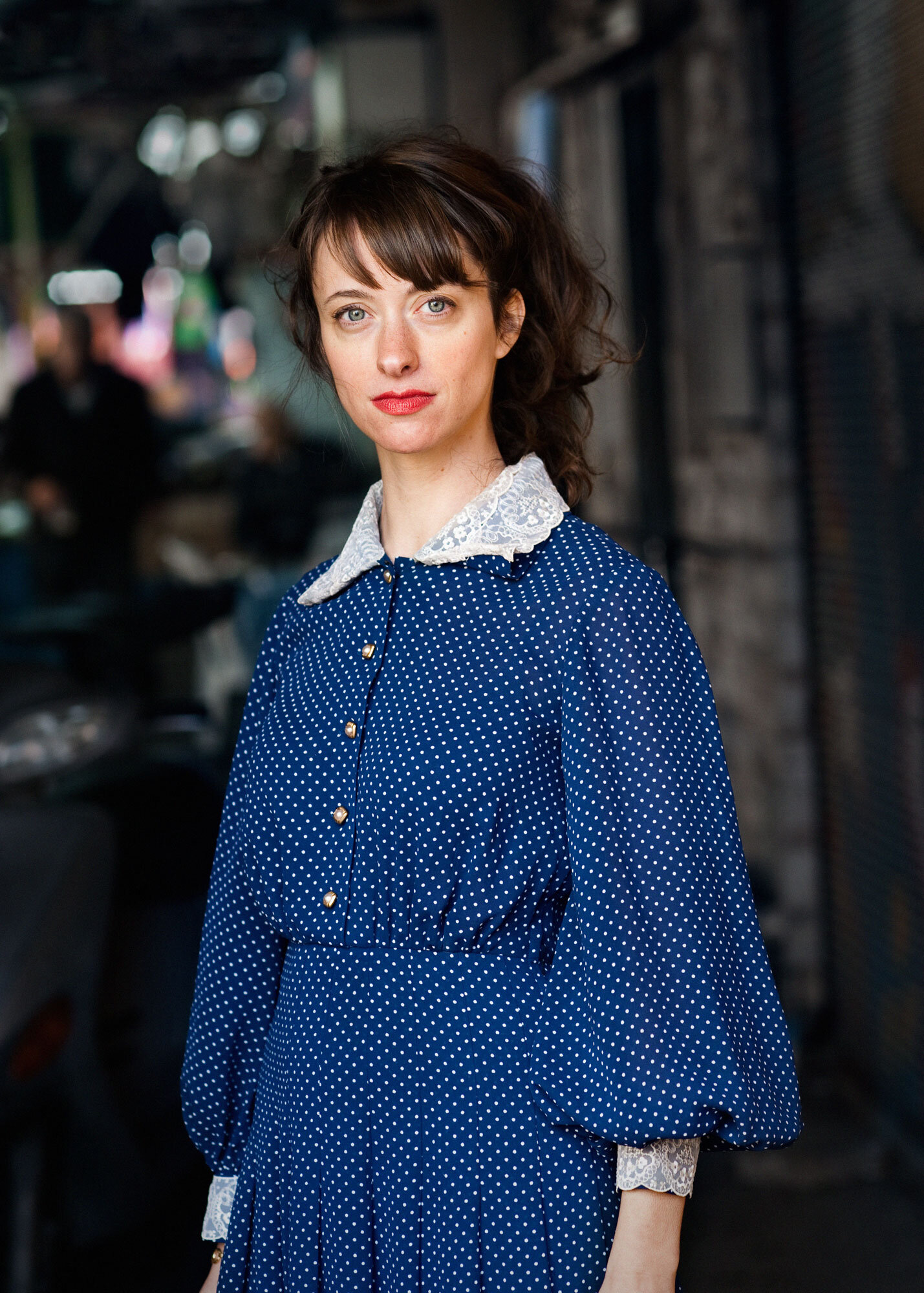
*1980 in Speyer, Autorin, lebt seit 2009 in Tel Aviv
Ein erstes Gespräch zwischen einem Deutschen und einem Israeli ist nie einfach nur Smalltalk, die Geschichte sitzt immer mit am Tisch.
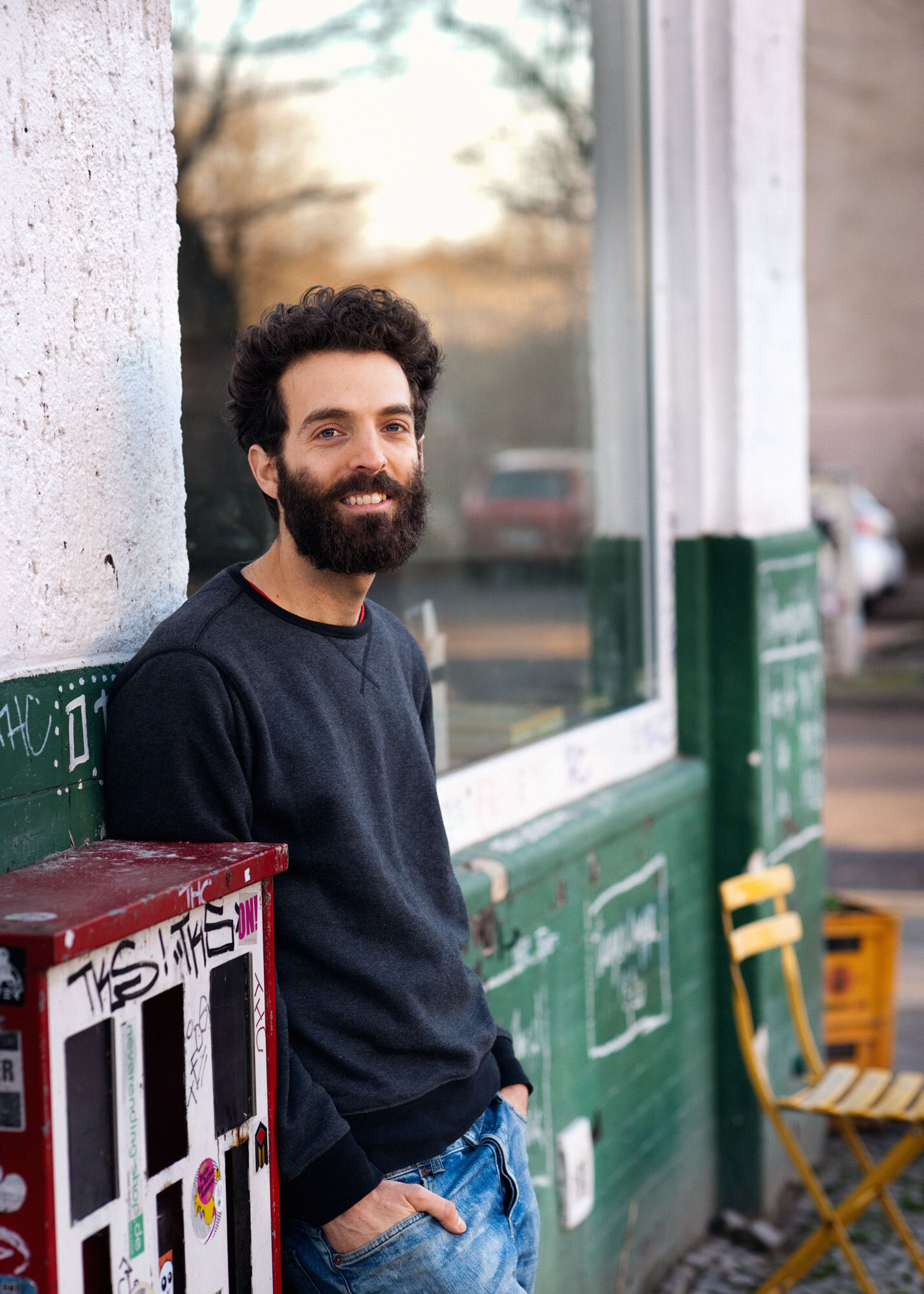
*1983 in Haifa, Master in Biology, works as a tour guide, in Berlin since 2010
To be an Israeli is a decision, like belonging to any other people. This is a daily decision that each Israeli has to make. It is a source of meaning through an illusion of connection to a human cultural structure that one was born into and spent many influential years in. It can also be a burden because of recent history and not so recent history. It's at times being a part of a controversy that one never decided to be a part of. It's sometimes needing to make excuses for things you had no part in. It's baggage.
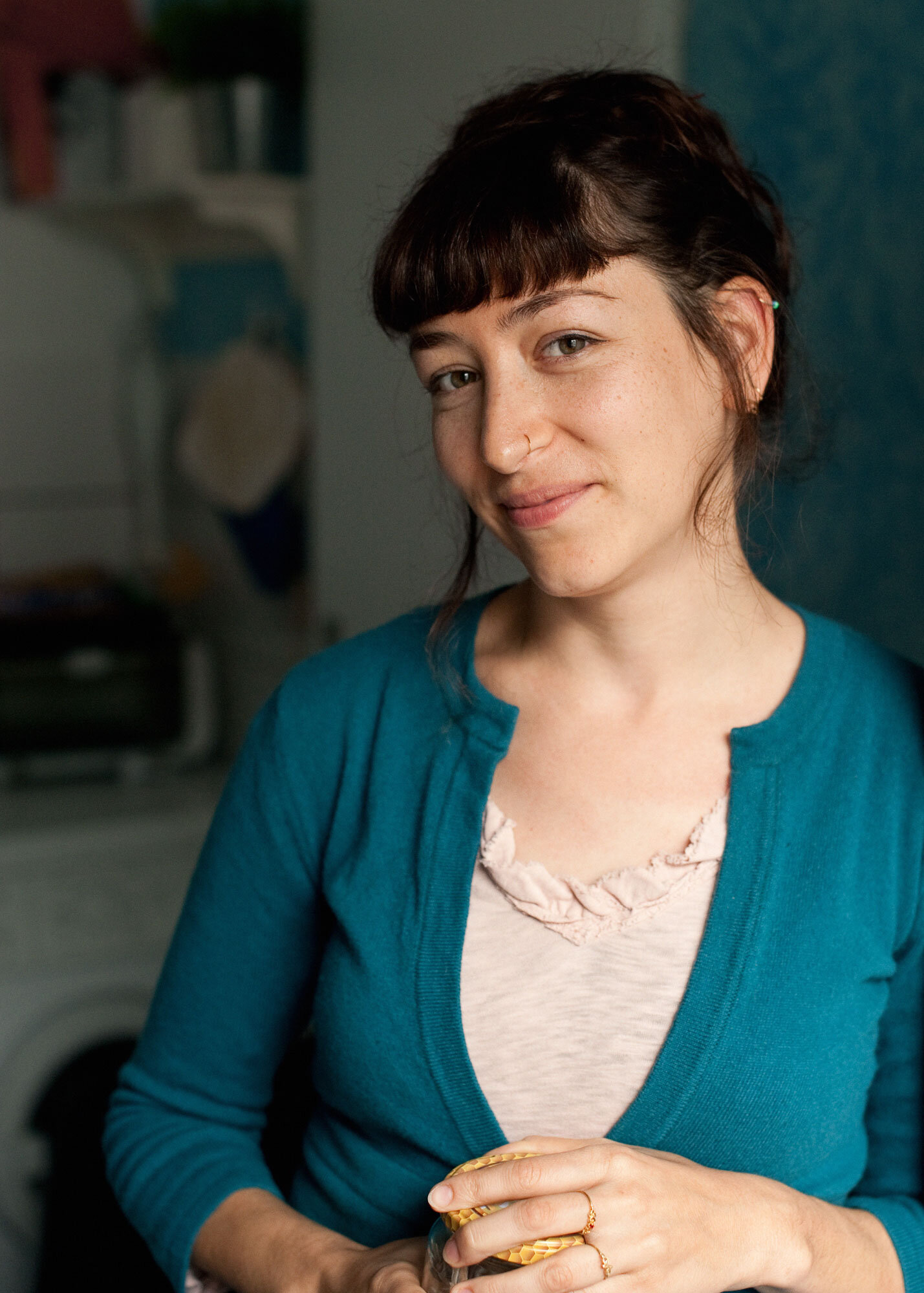
*1983 in Jerusalem, filmeditor, in Berlin since 2014
I always carry a heavy weight with me. Because the story of Israel is so unique in world history, and it has so many unresolved issues that come along with it. I often find myself put in the position of someone who is expected to have answers, or to represent what is going on politically.
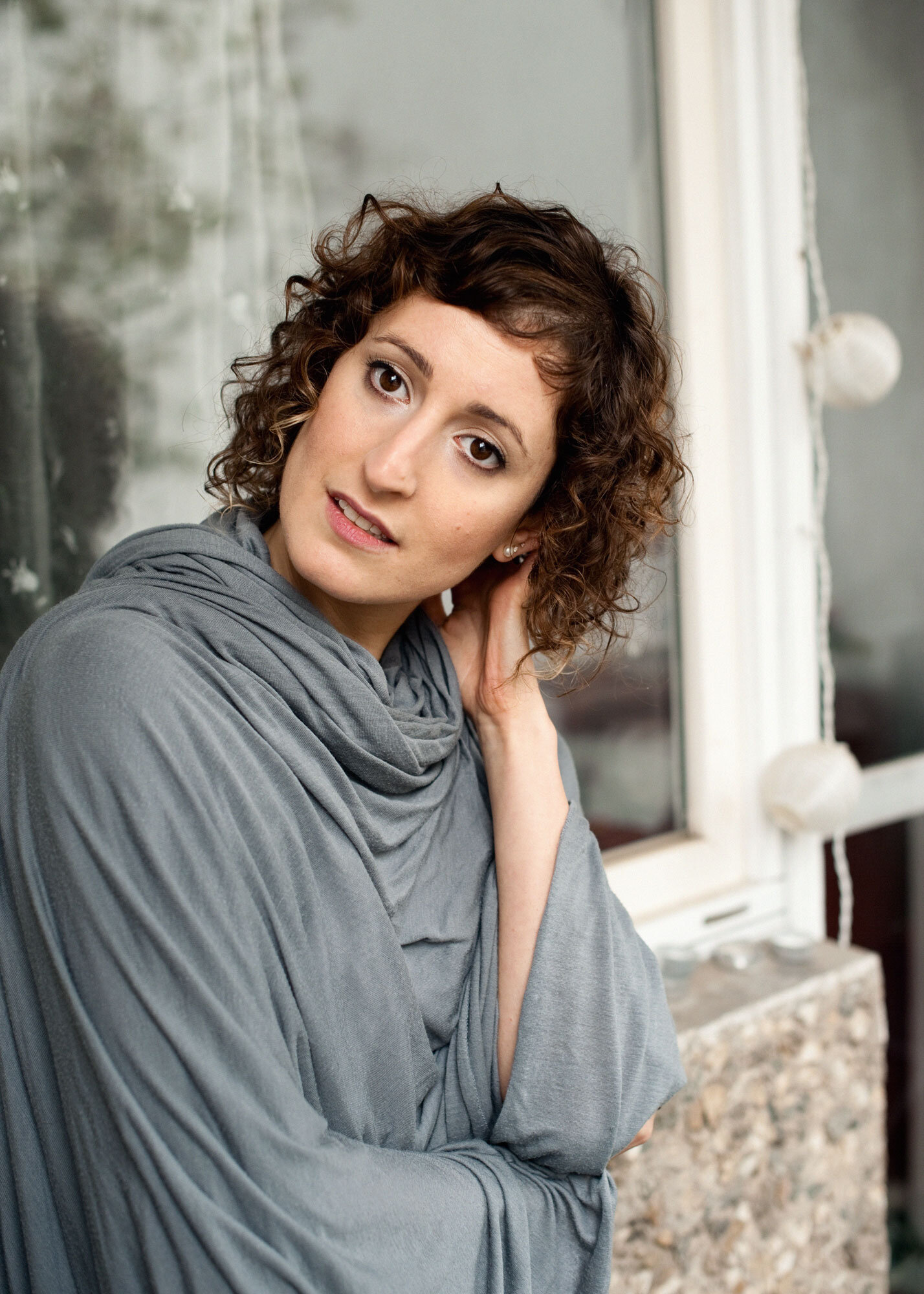
*1984 Kibbutz Ayelet HaShachar, cellist, lived in Berlin from 2009-2014
The Stolpersteine in front of my house are always there to bring me out for a moment from my personal life. Who were those people? Maybe they lived exactly where I'm living now? Although legally I'm German I always feel I am an Israeli in Germany. It's not my Heimat.
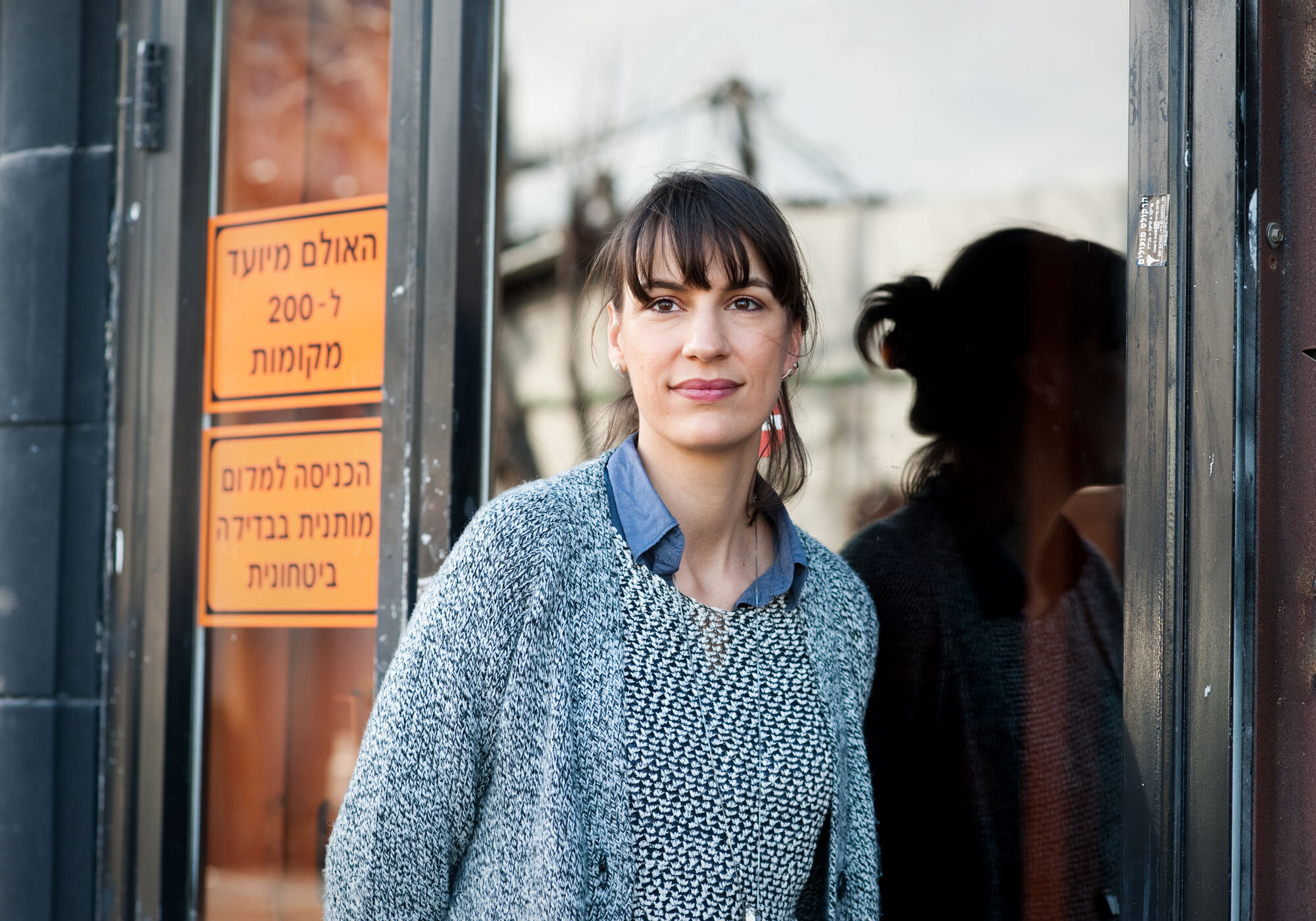
*1980 in Würzburg, Schmuckdesignerin, lebt seit 2008 in Tel Aviv
Es war mir am Anfang äußerst unangenehm zu sagen, dass ich deutsch, aber nicht jüdisch sei und ich hatte jedes Mal Angst vor der Reaktion. Faszinierenderweise haben alle immer sehr positiv auf mein "Deutschsein" reagiert und es weniger mit dem 2.Weltkrieg in Verbindung gebracht, sondern eher mit netten Menschen, die sie beim Reisen kennengelernt haben, tollen Autos und dem Qualitätssiegel "Made in Germany". Für mich ist Israel zur Heimat geworden.
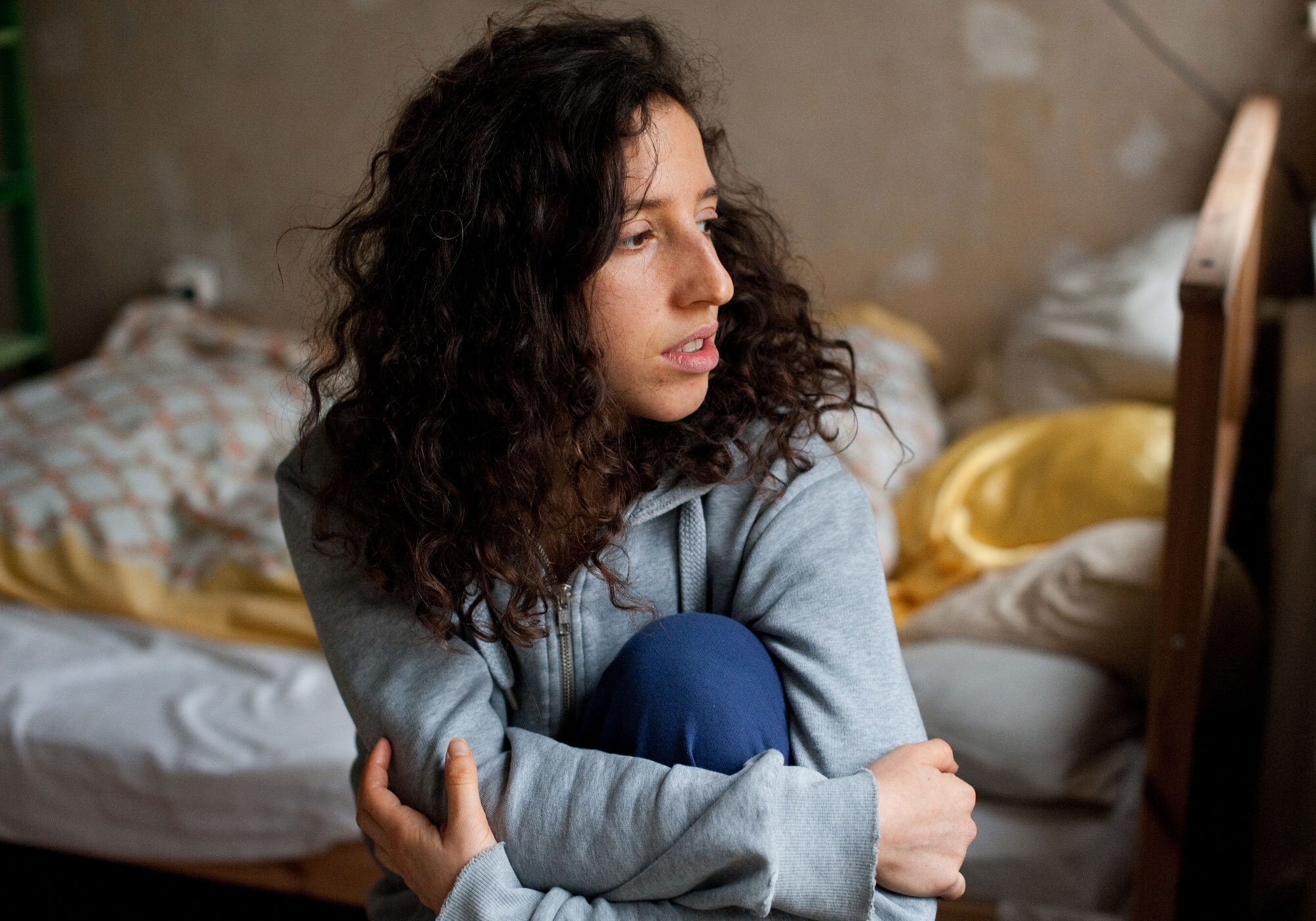
*1987 in Tel Aviv, dancer, yoga teacher, in Berlin since 2012
After three years of being so preoccupied with putting down roots, I feel more grounded now and I ask myself: I love Berlin, but do I really want to live in a place where the thing that makes people most angry is when you are slow at putting your groceries in your bag at the supermarket check out?
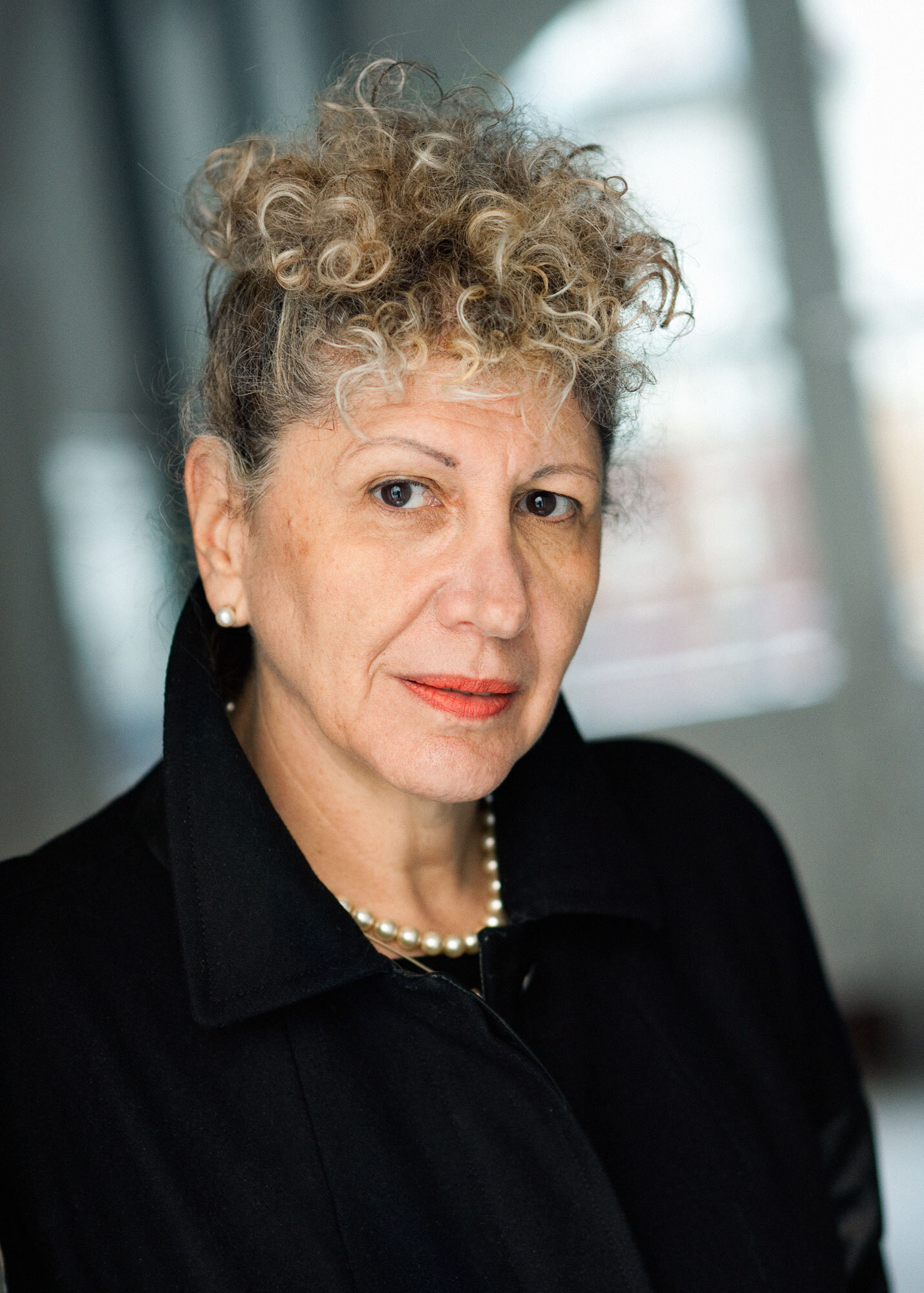
*1953, author, lives in Tel Aviv and Berlin.
If someone were to ask me if I'm Israeli I would answer, "Yes". And if he asked me what that means I would say, "I don't know". My search for a definition is, "A work in progress".
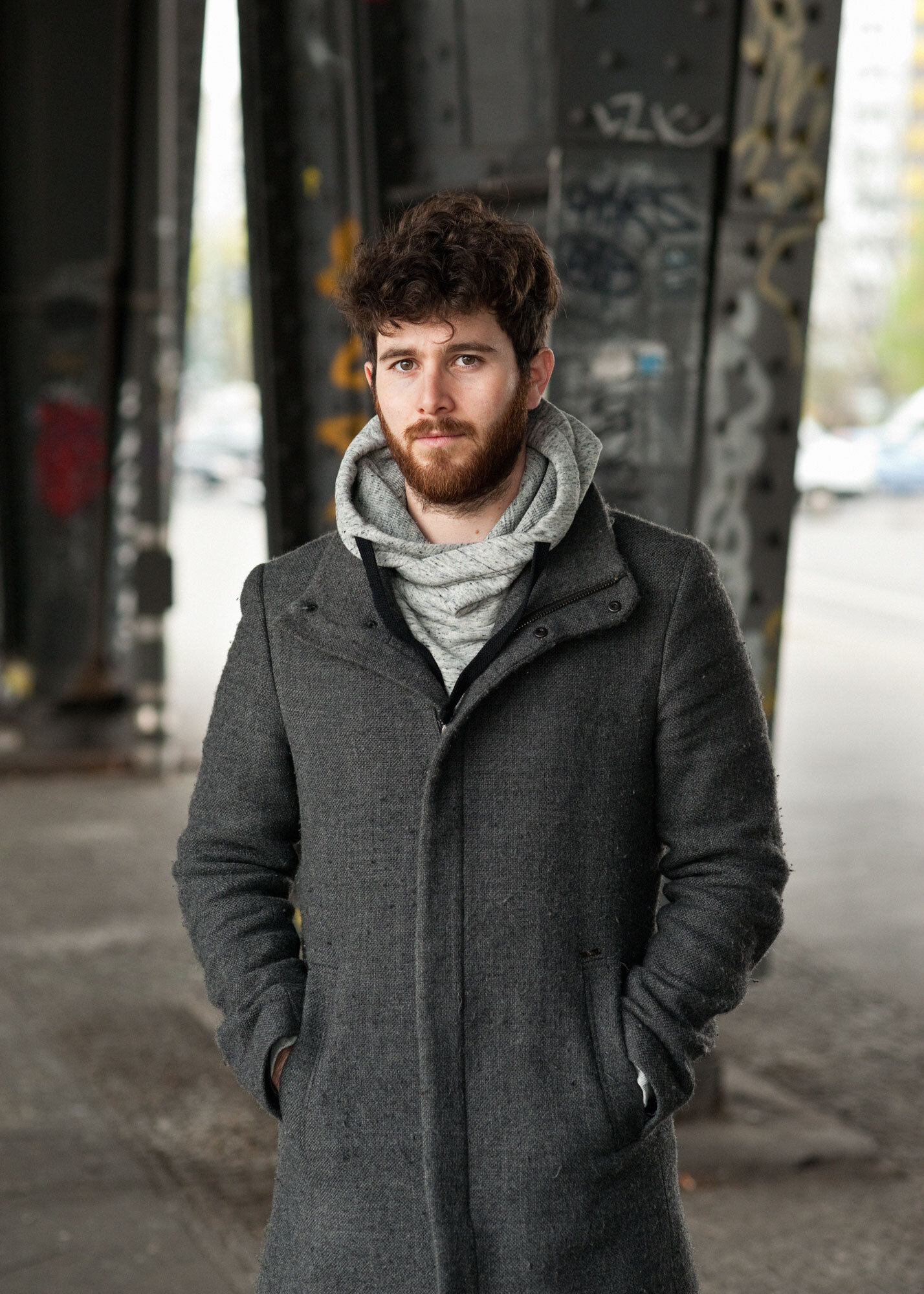
*1988 in Jerusalem, musician, in Berlin since 2014
When I moved to Germany last summer Israel was in the midst of war. It took me two weeks to understand that the U-Bahn noises over my head were not missiles. I hope to channel dreams instead of fears.
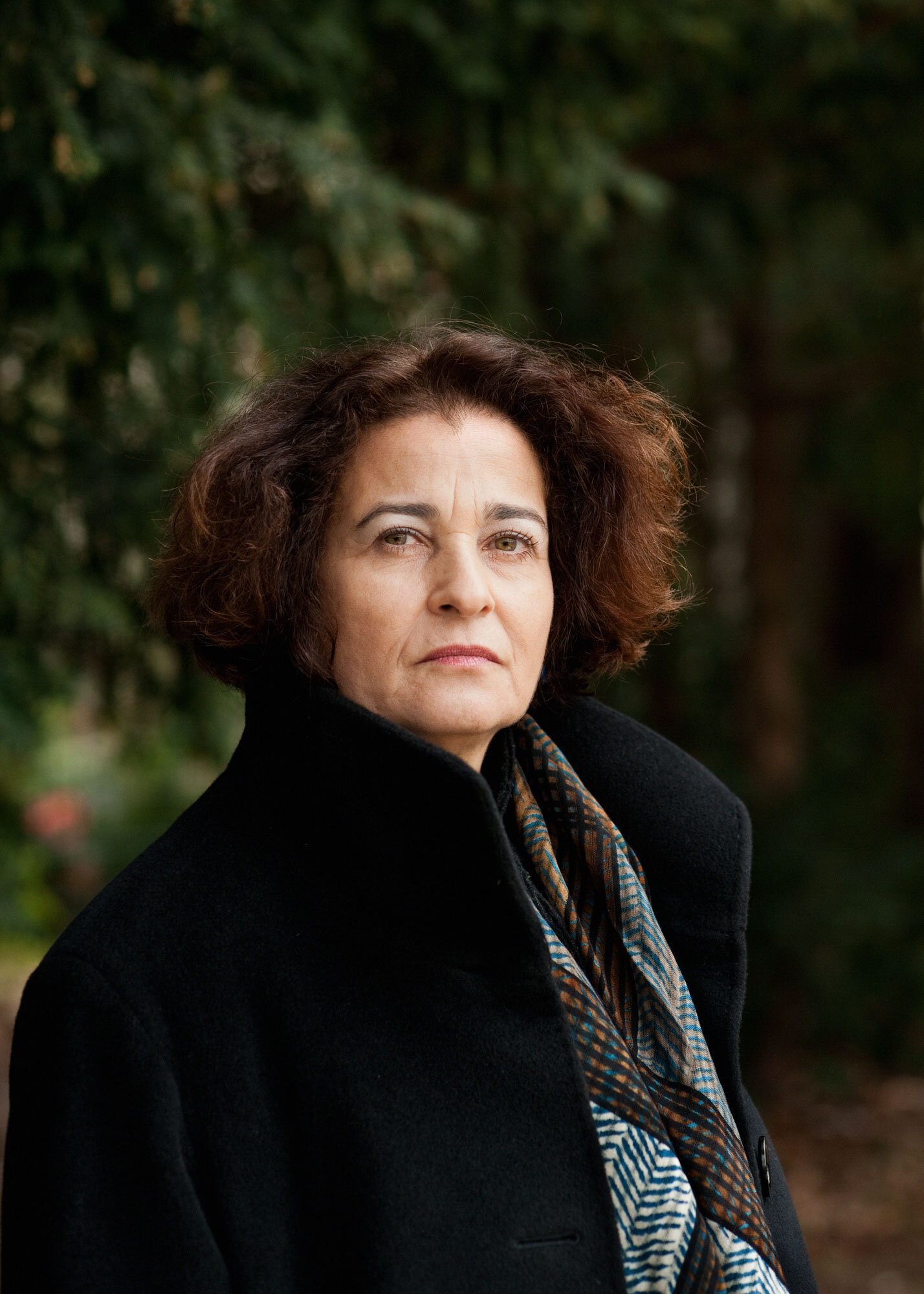
*1956 Jerusalem, Goldschmiedin, 1988-91 in Hamburg, lives in Tel Aviv and Berlin
Ich bin mit zwei Kulturen groß geworden, wir haben zu Hause deutsch gesprochen und meine Eltern sind schon früh mit mir nach Deutschland gefahren. Trotzdem weiß ich nicht, was mein Vater dazu sagen würde, dass ich jetzt ein Apartment hier habe. Aber mir war eine Sicherheit auflerhalb Israels wichtig.
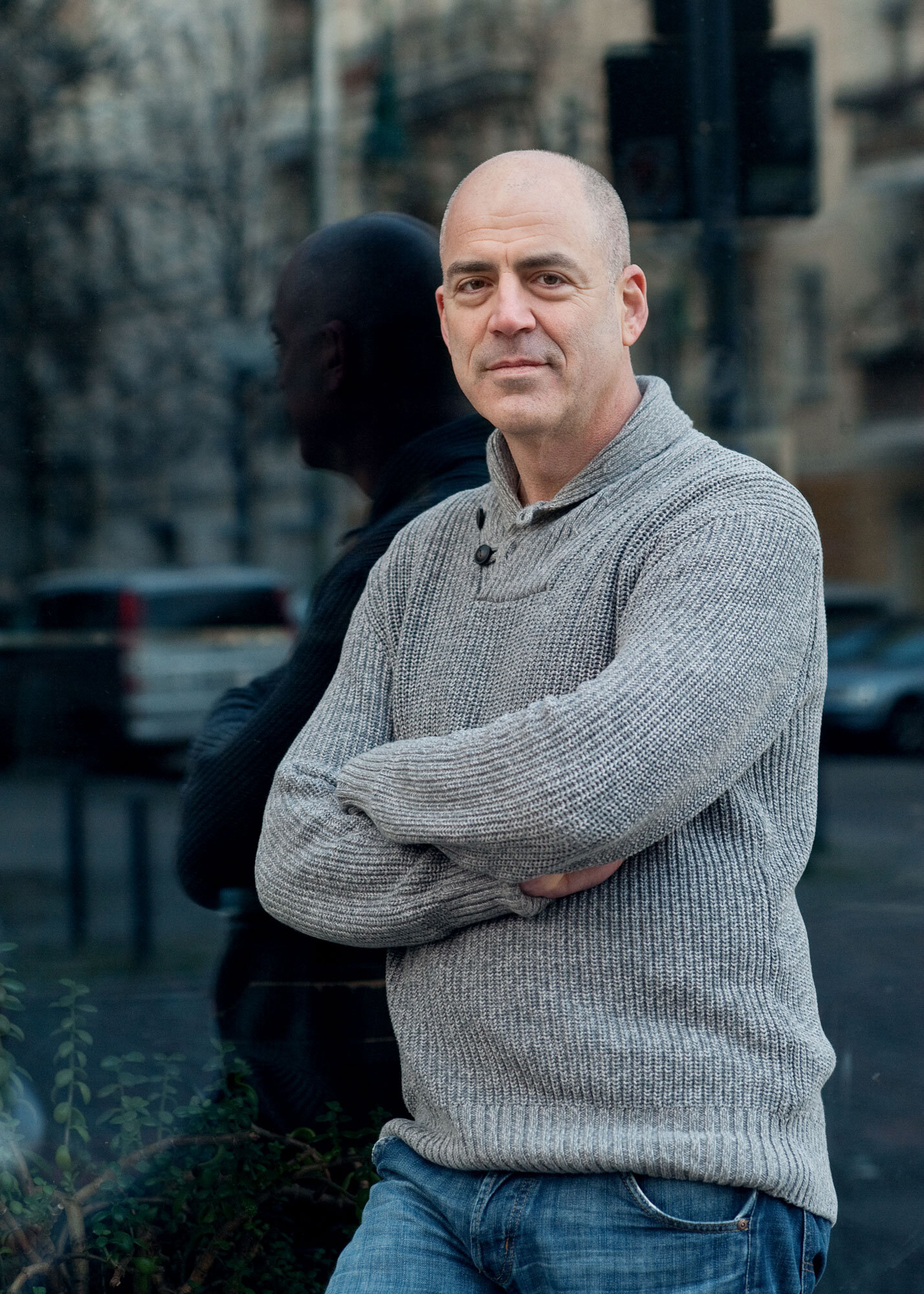
*1968 in Holon, teamleader at Pay Pal, in Berlin since 2006
My grandmother, a Holocaust survivor, told me - there are bad people, there are good people. Be good.
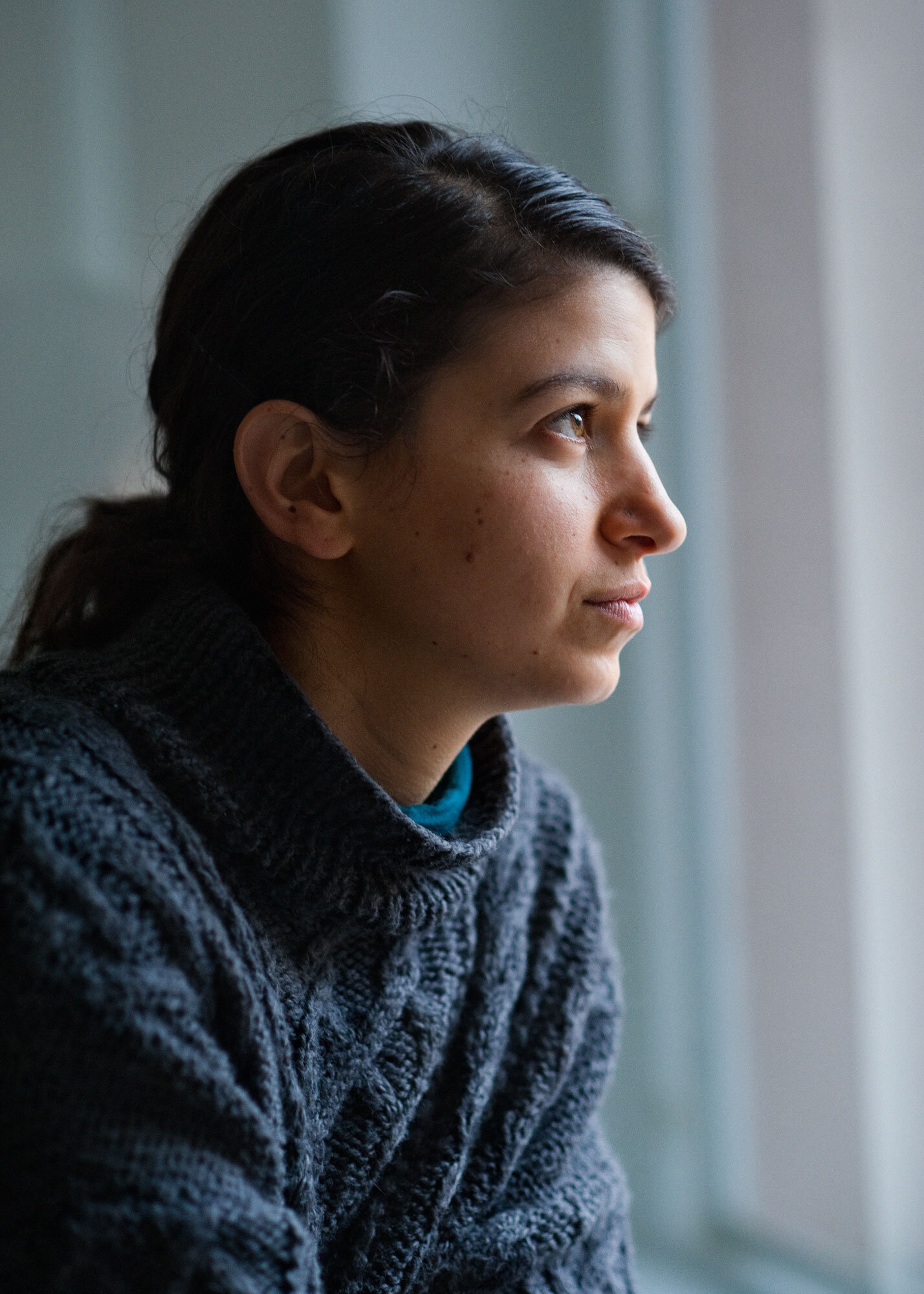
*1987 Ashkelon, grew up in Misgav, dancer and choreographer, in Berlin since 2012
What is left from the past are memories and things that represent memories. When a person is not here anymore to contain these memories is it like these things never happened? My grandfather knows things that no one else knows, and when he is no longer here, no one will know about them. It will be like they never happened. The past looks very far and very close at the same time.
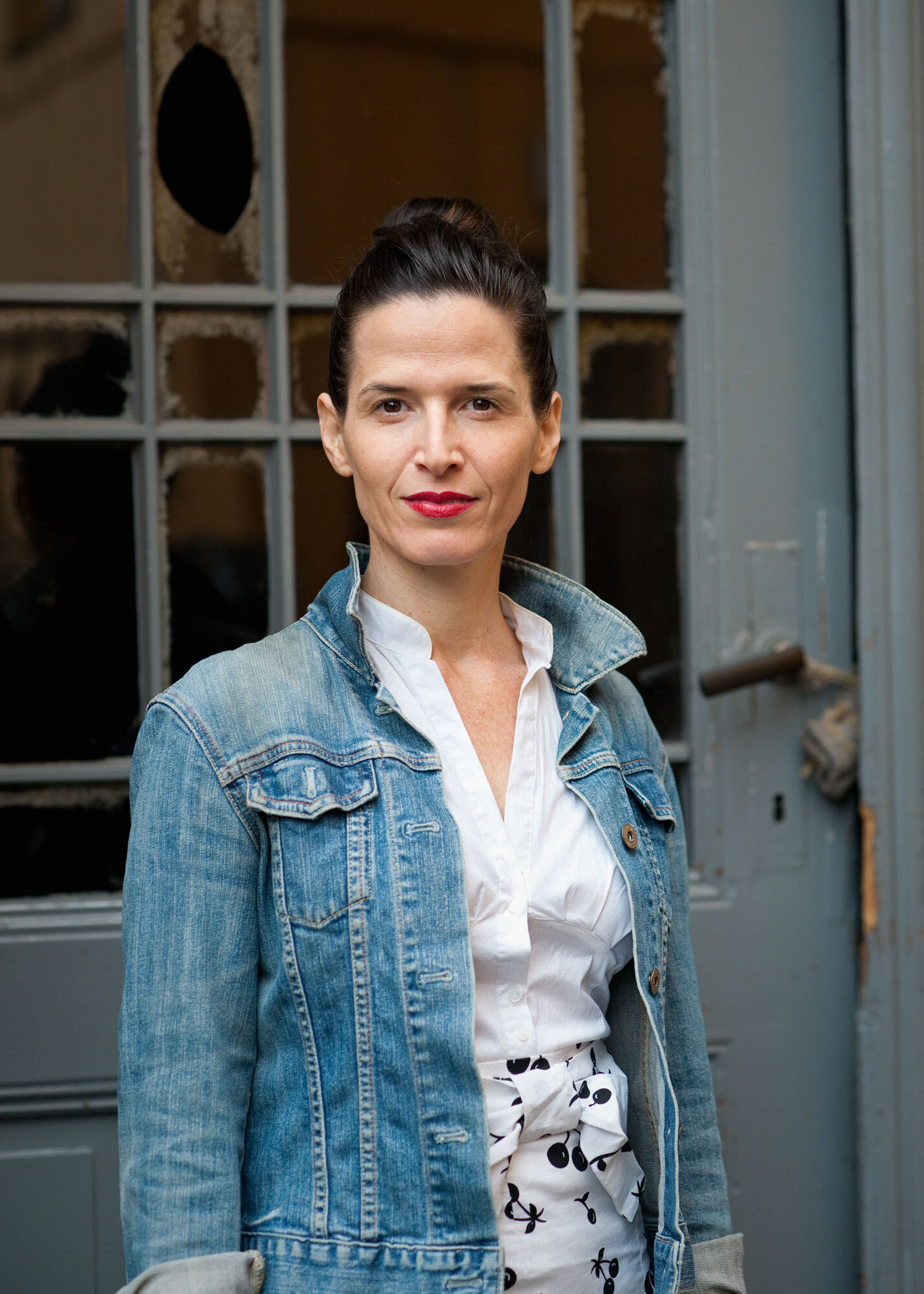
*1975 in Tel Aviv, journalist, in Berlin since 2009
Hebrew is an emotional home for me. This is part of the reason why I started "Spitz" - it creates a lot of opportunities where my emotional home and my current physical home connect and interact. This dialogue is anchored in the present, but sometimes I can also feel an indistinct connection to the vivid Hebrew life that was intensively explored by Jews in Berlin before National Socialism gained power.
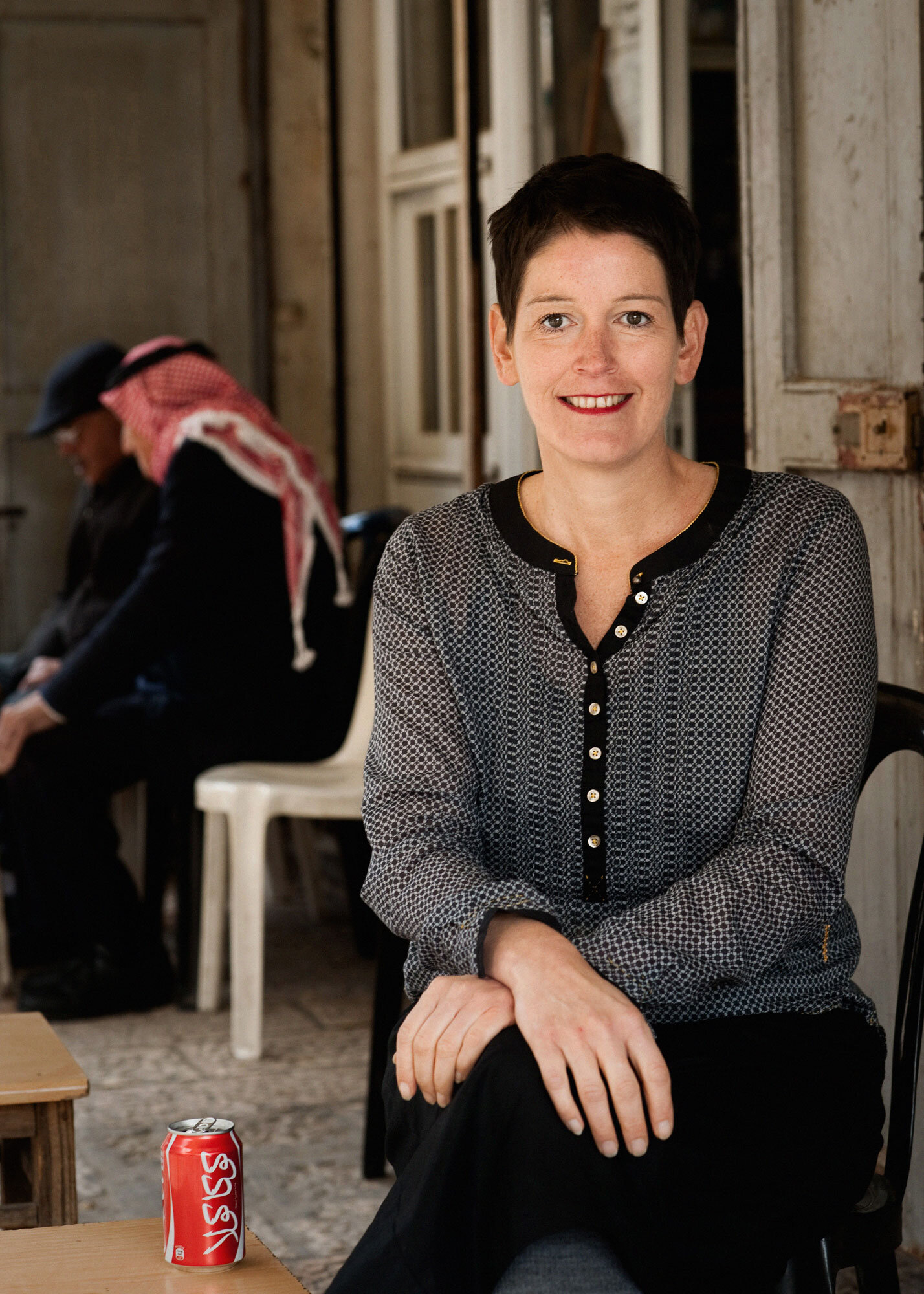
*1969 in Goch, Kuratorin am Israel Museum, lebt seit 2012 in Jerusalem
Als Deutsche habe ich eine besondere Verantwortung. Dass das Israel Museum mich eingestellt hat, ist eine wunderbare Geste der Versöhnung.
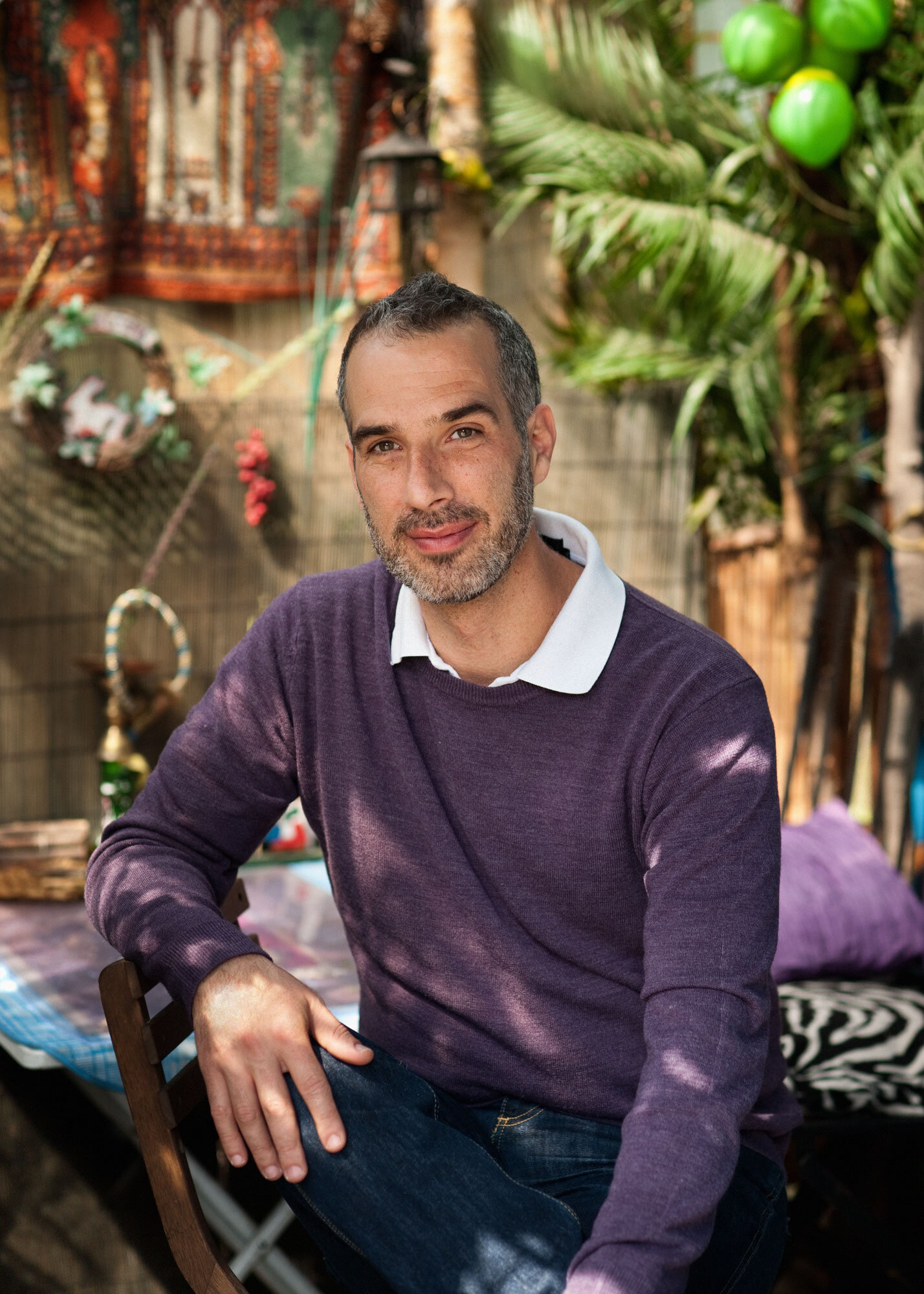
*1972 Haifa, poet, in Berlin since 2013
As a Jew, I can not visit my family's graves in the places where my ancestors lived for over a thousand years: Iran, Syria and Iraq...
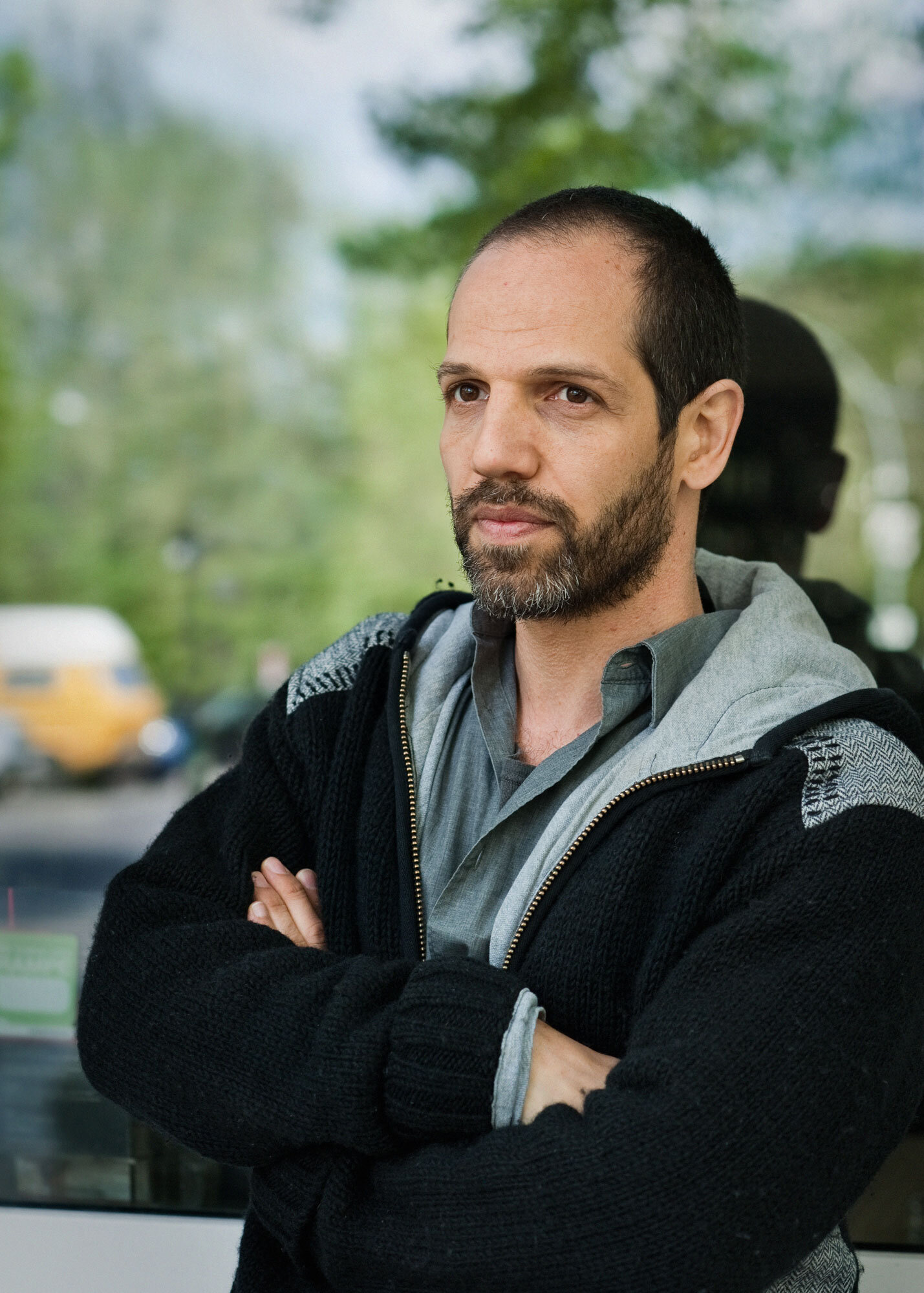
*1976 in Haifa, actor, in Berlin since 2013
An Arab? An Israeli Arab? A Palestinian? An Israeli Palestinian? …
This is the question I´m confronted with In Israel: How do you identify yourself ? If you are Jewish it's ok. But when you are an Arab you feel confused about who you are. When I get interviewed as a known actor they always ask me about my identity and my political view and not about my work. If I was Jewish they wouldn't ask me that. In Berlin, people don't care about it. Here they ask me about my work, my family, about love...my Christian-Arab background is only one of many interesting stories. That's why I'm happy my son is here. That he doesn't have to deal with his "complex" identity being half Arab half Jewish.



















2015 in the occasion of the 50th anniversary of diplomatic relations between Israel and Germany I traced the German-Israeli relations beyond the political agenda by working with individual people About 20.000 Israelis have made Berlin their home and many Germans are living in Israel. Understanding, empathy, but also fractures and differences can only be experienced in direct contact with the respective other. The personal contact I experienced painted an increasingly differentiated picture of German-Israeli relations.
*1987 in Tel Aviv, musician, lived in Berlin for one year
Being an Israeli means: To be rude. To get what you want. To be militant. To be loud. To drive dangerously. To honk, beep beep. To always get along, no matter where you are. To get friends anywhere. To know at least one person, no matter where you are. To get things going.
Katharina Höftmann-Ciobtaru
*1984 Rostock, Autorin und Journalistin, lebt seit 2010 in Tel Aviv
Ich bin im Kern Deutsche und manchmal fehlt es mir unglaublich, einfach „zu Hause“ zu sein. Ich glaube, dass schon immer eine gesunde Portion Israeli in mir steckte - aber gerade seitdem ich einen kleinen Sohn habe, ist es mir wichtig, auch die Kultur und Werte, mit denen ich aufgewachsen bin, hochzuhalten. In Deutschland bin ich nun mal eine Gurke unter Gurken. Zum Glück ist Israel ein Gemüsesalat.
*1982 in Qiryat Gat, lives and creates in Berlin since 2014
I never define myself as an Israeli or Jew, but rather, as a Hebrew. I believe we should strive to relinquish all definitions and comprehend that all is one.
*1980 in Speyer, Autorin, lebt seit 2009 in Tel Aviv
Ein erstes Gespräch zwischen einem Deutschen und einem Israeli ist nie einfach nur Smalltalk, die Geschichte sitzt immer mit am Tisch.
*1983 in Haifa, Master in Biology, works as a tour guide, in Berlin since 2010
To be an Israeli is a decision, like belonging to any other people. This is a daily decision that each Israeli has to make. It is a source of meaning through an illusion of connection to a human cultural structure that one was born into and spent many influential years in. It can also be a burden because of recent history and not so recent history. It's at times being a part of a controversy that one never decided to be a part of. It's sometimes needing to make excuses for things you had no part in. It's baggage.
*1983 in Jerusalem, filmeditor, in Berlin since 2014
I always carry a heavy weight with me. Because the story of Israel is so unique in world history, and it has so many unresolved issues that come along with it. I often find myself put in the position of someone who is expected to have answers, or to represent what is going on politically.
*1984 Kibbutz Ayelet HaShachar, cellist, lived in Berlin from 2009-2014
The Stolpersteine in front of my house are always there to bring me out for a moment from my personal life. Who were those people? Maybe they lived exactly where I'm living now? Although legally I'm German I always feel I am an Israeli in Germany. It's not my Heimat.
*1980 in Würzburg, Schmuckdesignerin, lebt seit 2008 in Tel Aviv
Es war mir am Anfang äußerst unangenehm zu sagen, dass ich deutsch, aber nicht jüdisch sei und ich hatte jedes Mal Angst vor der Reaktion. Faszinierenderweise haben alle immer sehr positiv auf mein "Deutschsein" reagiert und es weniger mit dem 2.Weltkrieg in Verbindung gebracht, sondern eher mit netten Menschen, die sie beim Reisen kennengelernt haben, tollen Autos und dem Qualitätssiegel "Made in Germany". Für mich ist Israel zur Heimat geworden.
*1987 in Tel Aviv, dancer, yoga teacher, in Berlin since 2012
After three years of being so preoccupied with putting down roots, I feel more grounded now and I ask myself: I love Berlin, but do I really want to live in a place where the thing that makes people most angry is when you are slow at putting your groceries in your bag at the supermarket check out?
*1953, author, lives in Tel Aviv and Berlin.
If someone were to ask me if I'm Israeli I would answer, "Yes". And if he asked me what that means I would say, "I don't know". My search for a definition is, "A work in progress".
*1988 in Jerusalem, musician, in Berlin since 2014
When I moved to Germany last summer Israel was in the midst of war. It took me two weeks to understand that the U-Bahn noises over my head were not missiles. I hope to channel dreams instead of fears.
*1956 Jerusalem, Goldschmiedin, 1988-91 in Hamburg, lives in Tel Aviv and Berlin
Ich bin mit zwei Kulturen groß geworden, wir haben zu Hause deutsch gesprochen und meine Eltern sind schon früh mit mir nach Deutschland gefahren. Trotzdem weiß ich nicht, was mein Vater dazu sagen würde, dass ich jetzt ein Apartment hier habe. Aber mir war eine Sicherheit auflerhalb Israels wichtig.
*1968 in Holon, teamleader at Pay Pal, in Berlin since 2006
My grandmother, a Holocaust survivor, told me - there are bad people, there are good people. Be good.
*1987 Ashkelon, grew up in Misgav, dancer and choreographer, in Berlin since 2012
What is left from the past are memories and things that represent memories. When a person is not here anymore to contain these memories is it like these things never happened? My grandfather knows things that no one else knows, and when he is no longer here, no one will know about them. It will be like they never happened. The past looks very far and very close at the same time.
*1975 in Tel Aviv, journalist, in Berlin since 2009
Hebrew is an emotional home for me. This is part of the reason why I started "Spitz" - it creates a lot of opportunities where my emotional home and my current physical home connect and interact. This dialogue is anchored in the present, but sometimes I can also feel an indistinct connection to the vivid Hebrew life that was intensively explored by Jews in Berlin before National Socialism gained power.
*1969 in Goch, Kuratorin am Israel Museum, lebt seit 2012 in Jerusalem
Als Deutsche habe ich eine besondere Verantwortung. Dass das Israel Museum mich eingestellt hat, ist eine wunderbare Geste der Versöhnung.
*1972 Haifa, poet, in Berlin since 2013
As a Jew, I can not visit my family's graves in the places where my ancestors lived for over a thousand years: Iran, Syria and Iraq...
*1976 in Haifa, actor, in Berlin since 2013
An Arab? An Israeli Arab? A Palestinian? An Israeli Palestinian? …
This is the question I´m confronted with In Israel: How do you identify yourself ? If you are Jewish it's ok. But when you are an Arab you feel confused about who you are. When I get interviewed as a known actor they always ask me about my identity and my political view and not about my work. If I was Jewish they wouldn't ask me that. In Berlin, people don't care about it. Here they ask me about my work, my family, about love...my Christian-Arab background is only one of many interesting stories. That's why I'm happy my son is here. That he doesn't have to deal with his "complex" identity being half Arab half Jewish.
